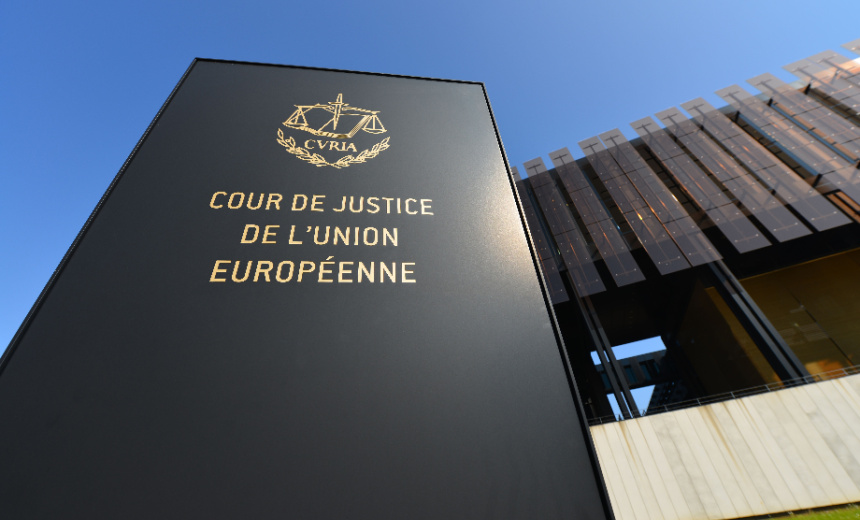Meta Hit Once more With Focused Promoting Limits In Europe
[ad_1]
General Data Protection Regulation (GDPR)
,
Governance & Risk Management
,
Privacy
European Court docket of Justice Says Meta Might Not Indefinitely Retain Consumer Information

Targeted advertising may face additional restrictions following a ruling by the top European Union court that social media giant Meta cannot indefinitely retain user data. Nor can it use data for advertising “without distinction as to type of data,” the European Court of Justice said Friday.
See Also: How Enterprise Browsers Enhance Security and Efficiency
The ruling stems from a 2014 case introduced by Austrian privateness advocate Max Schrems, who on his personal and thru nonprofit None Of Your Enterprise has waged a years-long marketing campaign pitting European privateness rules towards omnipresent on-line information assortment utilized by main tech corporations to personalize promoting – and particularly, towards Fb and Instagram mum or dad Meta (see: Meta’s AI Model Training Comes Under European Scrutiny).
The courtroom has but to publish its full opinion, however a brief summary states that the Common Information Safety Regulation prohibits on-line platforms from aggregating, analyzing and processing information “with out restriction as to time and with out distinction as to sort of information.”
On-line platforms should comply with the precept of information minimization, the courtroom stated. “Meta has mainly been constructing an enormous information pool on customers for 20 years now, and it’s rising day by day,” said Schrems’ legal professional Katharina Raabe-Stuppnig. “Following this ruling solely a small a part of Meta’s information pool will probably be allowed for use for promoting – even when customers consent to adverts.”
Privateness advocates say focused promoting expertise will depend on a system of pervasive on-line surveillance that violates human rights until explicitly agreed to by customers. Web giants akin to Fb and Google argue that focused promoting permits them to supply cost-free entry to highly effective digital expertise and that customers desire receiving tailor-made to their pursuits, whatever the context wherein they seem.
Critics of focused promoting already scored a partial victory in 2023 with a European Court docket of Justice ruling in a case introduced by the German competitors authority discovering that on-line platforms cannot depend on privateness legislation exceptions from acquiring person consent when processing information obtained from third-party web sites which have Fb code built-in onto them, akin to via a like or share button.
Fb says roughly 10% of its worldwide revenues come from adverts delivered to Fb customers in buying and selling bloc members.
The European courtroom additionally weighed in on the query of whether or not a public disclosure by Schrems throughout a panel dialogue in Vienna of his sexual orientation may be processed for focused promoting. It stated the Austrian Supreme Court docket ought to look at whether or not the disclosure is tantamount to a public information. If the information is public, it might be processed in compliance with the GDPR. “Nonetheless, that truth alone doesn’t authorize the processing of different private information regarding that information topic’s sexual orientation,” the courtroom stated, an announcement Raabe-Stuppnig stated is a win for the privateness advocate.
Fb didn’t instantly reply to a request for remark, however told TechCrunch it’s ready for publication of the courtroom’s opinion earlier than commenting. It additionally stated it would not use “particular class information” akin to sexual orientation in addition to ethnicity, well being standing or faith for focused promoting.
[ad_2]
Source link

